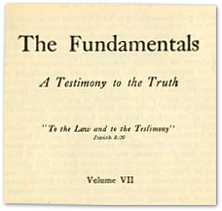The Synagogue and the Church: A Study of Their Common Backgrounds and Practices (Part 10)
 Reprinted with permission from As I See It, which is available free by writing to the editor at [email protected]. Read the series so far.
Reprinted with permission from As I See It, which is available free by writing to the editor at [email protected]. Read the series so far.
Chapter Six (continued): The Place of Women
Women in the Synagogue
Nothing is said about women in listing the requirement of ten men as the bare minimum for the establishment of a synagogue. The express instructions about the process of Gentile conversion to Judaism focus on male proselytes, but the mention of female proselytes in the Mishnah de facto establishes that female Gentiles could also convert to Judaism. And though women could convert to Judaism, this does not necessarily indicate that women were allowed to become a part of the synagogue. Kaufman Kohler, renowned Jewish scholar and President of Hebrew Union College, asserted matter-of-factly,
Women could not be members of the synagogue, though they seem to have performed synagogal functions of their own, and so prominent women were elected as mothers of the synagogue (‘Mater Synagogue’)…. They attended the service…, but could take no part in the common service.1

 Read
Read 

 (
(
Discussion